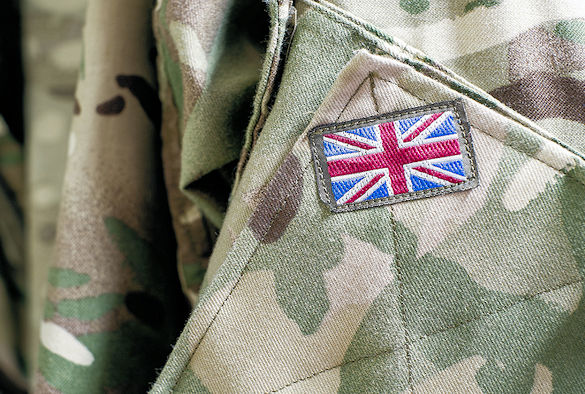
New research, published in Psychological Medicine, shows that, when compared to males in the UK general population, male veterans (who previously served in the UK Armed Forces) report a higher prevalence of common mental disorders, post-traumatic stress disorder and alcohol misuse (hazardous, harmful and dependent drinking). Female veterans report a higher prevalence of hazardous drinking compared to females in the UK general population.
The majority of UK Armed Forces (AF) personnel cope well with the challenges of military service and successfully adapt to non-military life after they leave. For some, military service can negatively impact on their mental health. Ensuring that the mental health needs of veterans are met is a UK Government priority and ensuring no disadvantage as a result of military service is a legal obligation enshrined in the AF Covenant. Despite this, there is little UK research into how the mental health of veterans compares to the UK general population.
In order to fill this gap, a team of researchers from the University of Liverpool and King’s Centre for Military Health Research, King’s College London, examined the prevalence of common mental disorders (CMD), post-traumatic stress disorder (PTSD) and alcohol misuse in UK veterans compared to non-veterans.
Data
The researchers examined data on 2,917 veterans as part of the King’s Centre for Military Health Research (KCMHR) cohort study, a large ongoing study of the health and wellbeing of the UK military.
The study assessed the mental health consequences (CMD, PTSD and alcohol misuse) of military service and deployment to the recent Iraq and Afghanistan conflicts. This data was compared to the data of non-veterans taken from two large general population surveys: 2014 Adult Psychiatric Morbidity Survey and wave 6 of the UK Household Longitudinal Study.
Results
The researchers found that, overall, UK veterans who served at the time of military operations to Iraq and Afghanistan reported a significantly higher prevalence of CMD (23% vs 16%), probable PTSD (8% vs 5%) and alcohol misuse (11% vs 6%) than non-veterans. These differences were not explained by sociodemographic differences between veterans and the general population samples.
Breaking down the results by gender showed that the differences in mental health and alcohol misuse were generally restricted to male veterans, although hazardous drinking was more common in female veterans than females in the general population.
Being unemployed or out of work due to illness or disability was associated with a higher prevalence of CMD and PTSD in both veterans and non-veterans.
Conclusion
Male veterans who served at the time of the Iraq and Afghanistan conflicts are more likely to experience a mental health problem compared to those who have never served. Veterans who are out of work (in particular, those with long term illness or disability) appear to have greater mental health needs compared to those in employment.
Lead author, Dr Laura Goodwin, University of Liverpool, said: “Despite the majority adapting well to civilian life there appears to be a higher prevalence of mental health problems in male veterans compared to males in the general population and therefore an increased need for mental health support.”
Dr Deirdre MacManus, King’s Centre for Military Health Research, King’s College London, said: “An obvious difference between those who have served in the UK military and those employed in other occupations is the experience of operational deployment. Interestingly, whilst our work suggests that deployment may partly explain the increased level of PTSD in veterans, it did not explain the increased prevalence of CMD or alcohol misuse.”
Professor Nicola Fear, King’s Centre for Military Health Research, King’s College London, said: “This work has shown that both male and female veterans are drinking more than individuals of a similar age from the general population. It is crucial that there is better awareness within the UK Armed Forces of when alcohol use becomes problematic and that appropriate support is available for those who need it.”
The full paper, entitled ‘Mental health disorders and alcohol misuse among UK military veterans and the general population: a comparison study’, can be found here.
https://doi.org/10.1017/S0033291720001944
This work was funded by the Forces in Mind Trust.